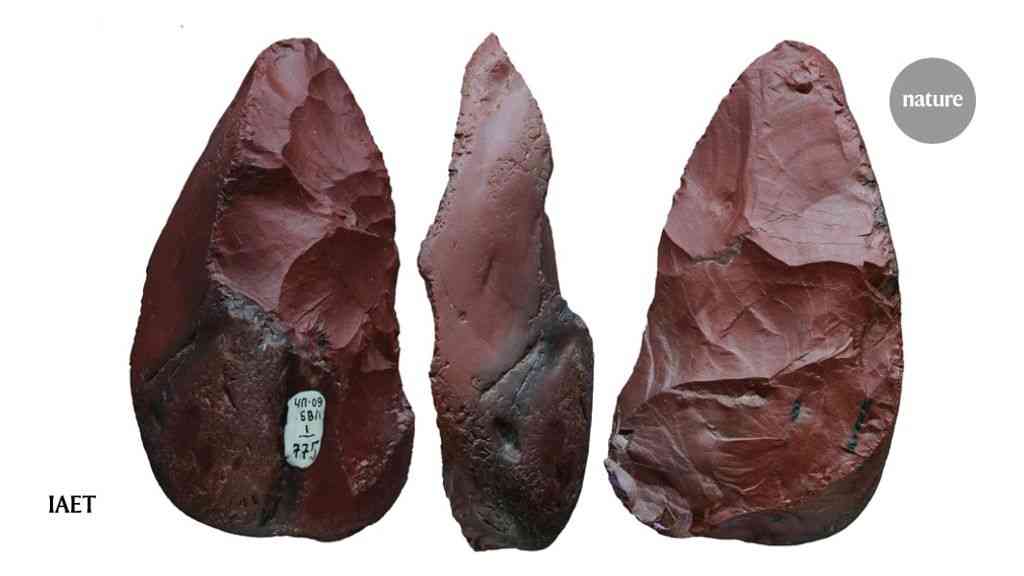This meat-cutting knife was found with Neanderthal fossils in the Altai Mountain foothills in Russia. Credit: IAET
Archaeology
A rich trove of fossils and stone tools in a Siberian cave suggests Neanderthals made an extraordinary 3,000-kilometre trek from Europe to colonize central Asia about 60,000 years ago.
Neanderthals have been found at numerous sites in Europe and western Asia, but the origins of Siberian populations have been elusive. Kseniya Kolobova at the Russian Academy of Sciences in Novosibirsk, Richard Roberts at the University of Wollongong, Australia, and their colleagues unearthed 74 Neanderthal fossils and 90,000 stone tools and other artefacts at Chagyrskaya Cave in Siberia’s Altai Mountains. The researchers argue that the tools closely match the style of Neanderthal tools found in Crimea and northern Caucasus, suggesting the Chagyrskaya Neanderthals originated in eastern Europe.
The tool analysis supports a 2019 DNA study suggesting that a Neanderthal from Chagyrskaya Cave was more closely related to Neanderthals from Europe than to Neanderthals at Denisova Cave, located 100 kilometres east of Chagyrskaya. The Neanderthal remains at Denisova Cave are more than 100,000 years old, and probably represent an earlier wave of migration.

